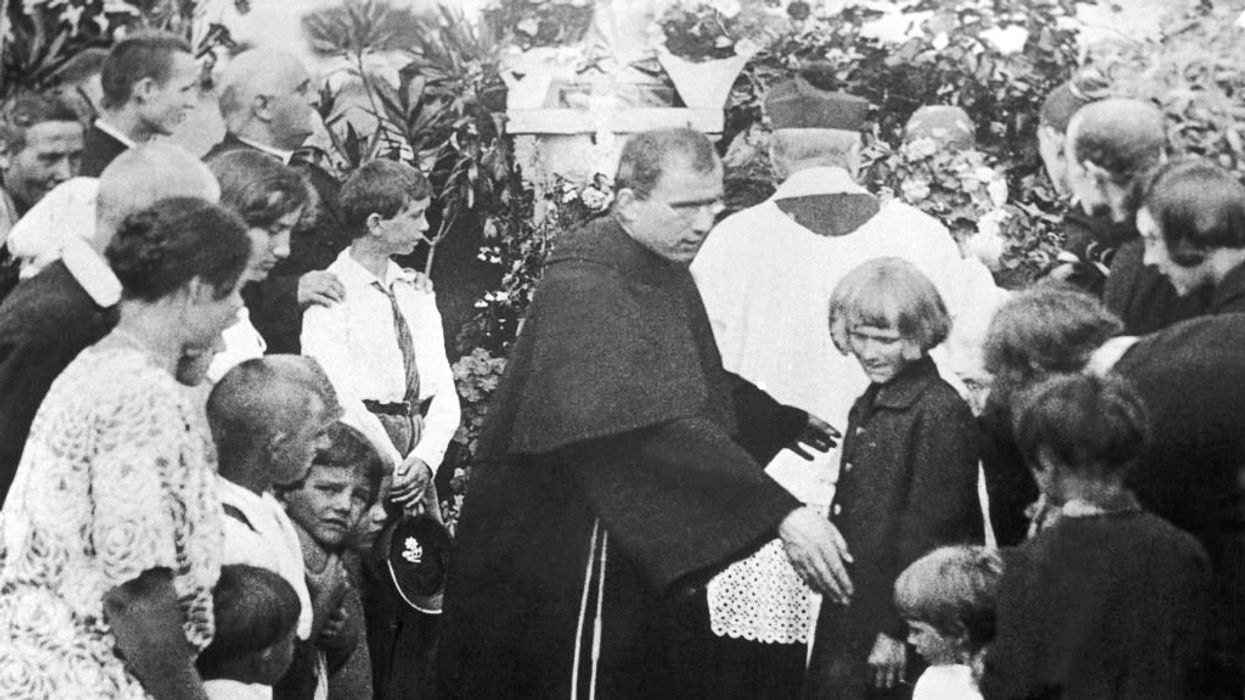
Keystone-France/Getty Images

What use are the victories on the battlefield if we ourselves are defeated in our innermost personal selves?
Easter is a time that confronts Christians with the more, shall we say, outlandish aspects of our faith. Yes, we really do believe that a man came back from the dead.
Even those not actively hostile to Christianity find this off-putting and tend to encourage a view of the resurrection that reduces it to some kind of metaphor for spiritual rebirth.
No, we answer. It really happened. And accepting that it did completely changes the nature of reality.
The search for truth — indeed, the notion that such a thing even exists — is highly underrated these days. But grasping it allows you to do great things.
To acknowledge the malevolent influence of unseen principals and powers is to understand that, from our earthly perspective, some victories can look like defeat. As a Catholic priest and Franciscan friar, Maximilian Kolbe was well aware of the eternal stakes of our existence. “There are two irreconcilable enemies in the depth of every soul: good and evil, sin and love,” he once wrote. "And what use are the victories on the battlefield if we ourselves are defeated in our innermost personal selves?”
But when the Nazis occupied Kolbe's native Poland in 1939, he did what he could to resist in the here and now. Refusing the status offered to him as an ethnic German, Kolbe helped to hide thousands of Jewish refugees in his friary. These efforts eventually caught up with him, and in 1941, he was sent to Auschwitz. There, he managed to use the time left to him to engage in spiritual combat of sorts.
When ten prisoners were selected for execution by starvation in retaliation for an escape attempt, Kolbe volunteered to take one of their places. He led the other prisoners in prayer and hymns as they faced slow and agonizing death. When only Kolbe and a few of his cellmates remained, a guard executed them with an injection of carbolic acid. Present at Kolbe’s 1983 canonization was the man whose life he saved.